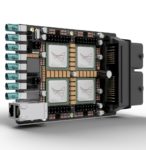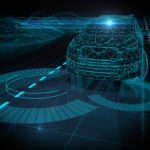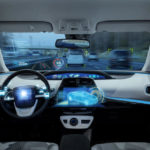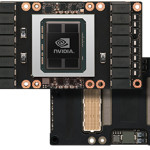Helsinki, Jan. 27, 2021 The Finnish self-driving software company Sensible 4 has started pre-pilot preparations at Gjesdal, Norway. This includes test-drives in harsh Norwegian winter and mapping of the route with autonomous Toyota vehicles. The pilot is part of the field testing phase of the EU funded FABULOS project. The pilot in Gjesdal is a direct […]
Zenuity and HPE to develop next generation autonomous cars
HPE has been selected by Zenuity, a leading developer of software for self-driving and assisted driving cars, to provide the crucial AI and HPC infrastructure it needs in order to develop next generation autonomous driving (AD) systems. “HPE will provide Zenuity with core data processing services that will allow Zenuity to gather, store, organize and analyze the data it generates globally from its network of test vehicles and software development centers. The end-to-end IT infrastructure will be delivered as-a-Service through HPE GreenLake.”
Quadric.io to Build “Supercomputer for Edge Devices”
Today chip startup Quadric.io announced plans to build the world’s first “supercomputer” specifically designed for the real-time needs of autonomous systems. “Instead of building a heterogeneous system with CPUs/GPUs/FPGAs & AI chips and dealing with that complexity of software and hardware integration, Quadric has the technology to handle most of the application in a single unified hardware architecture and software model.”
Deconstructing the Complexities of the Data Pipeline for Connected Cars
A connected car can generate up to a gigabyte of data per day, and perhaps even more. Impressively, it is estimated that there are approximately 2 million connected cars on our roadways at this very moment. This means the storage demands can be up to 200 exabytes per day. IBM walks readers through the complexities of the data pipeline for connected cars, and how to address these challenges and storage questions.
How Quantum Corp. Wrangles Big Data for HPC, Ai, and Autonomous Cars
In this video from SC18 in Dallas, Jason Coari from Quantum Corp. describes how the company wrangles Big Data for HPC, Ai, and Autonomous Cars. “Scientists and analysts today need intelligent data management throughout the entire research workflow, from ingest to HPC processing to archive. With multi-tier storage from Quantum, teams can better harness their data and transform the world.”
Solving the Data Management Challenge of Autonomous Driving
The action of driving an automobile is destined to take a very different route in the coming years as autonomous cars become commonplace on our roadways. The notion of autonomous driving is both scary and exciting, pushing the boundaries of what we know. IBM takes a look at one of the most vexing technology challenges posed by autonomous vehicles: how to manage all the data used in artificial intelligence development.
How NVIDIA Powers HPC for Energy at Dell EMC
In this video from the GPU Technology Conference, Peter Lilian from NVIDIA describes how the company works with Dell EMC to deliver extreme performance solutions for the Energy sector. “Dell EMC and NVIDIA have expanded their collaboration by signing a new strategic agreement to include joint product development of new products and solutions that address the burgeoning workload and datacenter requirements, with GPU-accelerated solutions for HPC, data analytics, and artificial intelligence.”
Nvidia in the Driver’s Seat for Deep Learning
In this special guest feature, Robert Roe from Scientific Computing World describes why Nvidia is in the driver’s seat for Deep Learning. “Nvidia CEO Jen-Hsun Huang’s theme for the opening keynote was based on “a new computing model.” Huang explained that Nvidia builds computing technologies for the most demanding computer users in the world and that the most demanding applications require GPU acceleration. ‘The computers you need aren’t run of the mill. You need supercharged computing, GPU accelerated computing’ said Huang.”










